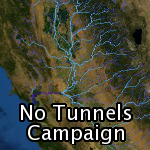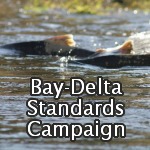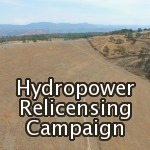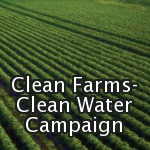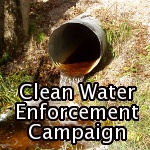On Friday, January 19, 2024, California Sportfishing Protection Alliance and AquAlliance submitted comments on the State Water Resources Control Board’s (State Board’s) proposed changes to the Bay-Delta Plan.
The State Board proposed these changes in a Draft Staff Report (Report) released on September 28, 2023. The stated objective of the Plan update is to provide for “the reasonable protection of fish and wildlife in the Sacramento River and its tributaries, Delta eastside tributaries (including the Calaveras, Cosumnes, and Mokelumne Rivers), and Delta.”
The release of the Report is welcome. As stated in the comments, “The status of the aquatic ecosystem and fisheries of the Bay-Delta estuary and its greater watershed is dire and worsening. We urge the State Water Board to act urgently on the Report with an update to the Bay-Delta Plan that supports restoration of the ecosystem.”
The Report proposes a Delta inflow and outflow objective of 55% of the unimpaired flow. CSPA supports the approach of the objective in using a percent of unimpaired flow. However, 55% does not provide enough flow to restore the Bay-Delta watershed and estuary or to “support and maintain the natural production of viable native fish populations.”
CSPA’s comments also support the proposed “complementary” objective of maintaining reservoir storage to protect water temperatures and to have a reserve in case the following years are dry.
The comments call on the State Board to conduct further analysis to allow sufficient flow to restore ecosystems while maintaining reservoir storage and limiting impacts to water supply. CSPA states that agricultural water supply must be limited compared to current use, especially in dry years and dry year sequences.
CSPA criticizes the Report for failing to give due weight to the common-law public trust doctrine and to the reasonable use doctrine as part of the foundation of the Report’s analysis. In California, water “belongs to the people.” “Put in the context of rights to water, a user of water must respect the rights and interests of others, including the peoples’ property right to robust fisheries, clean water, and healthy ecosystems.”
In general, the comments approve of the scope of issues that the Report tackles, including objectives or alternatives that address Delta export limitations, droughts, the direction of flows within the Delta, new water rights, and increased diversions. However, the solutions the Report proposes generally don’t take the direction far enough to meet the legal requirements to effectively protect fish and wildlife.
CSPA’s comments excoriate the Report’s inclusion of the Voluntary Agreements (VAs). “The Voluntary Agreements have no business in the Draft Staff Report.” The VAs were negotiated amongst water user interests and government agencies without environmental groups, native tribes, and other stakeholders. The purpose of the VAs is to replace protective flows with physical habitat changes and money.
CSPA concludes by calling on the State Board to correct the errors and omissions in the Report, to conduct additional analysis, and to produce a revised report consistent with the law.
A timeline for next steps is not yet clear, but the State Board has announced its intention to act on the Report by the end of 2024.



